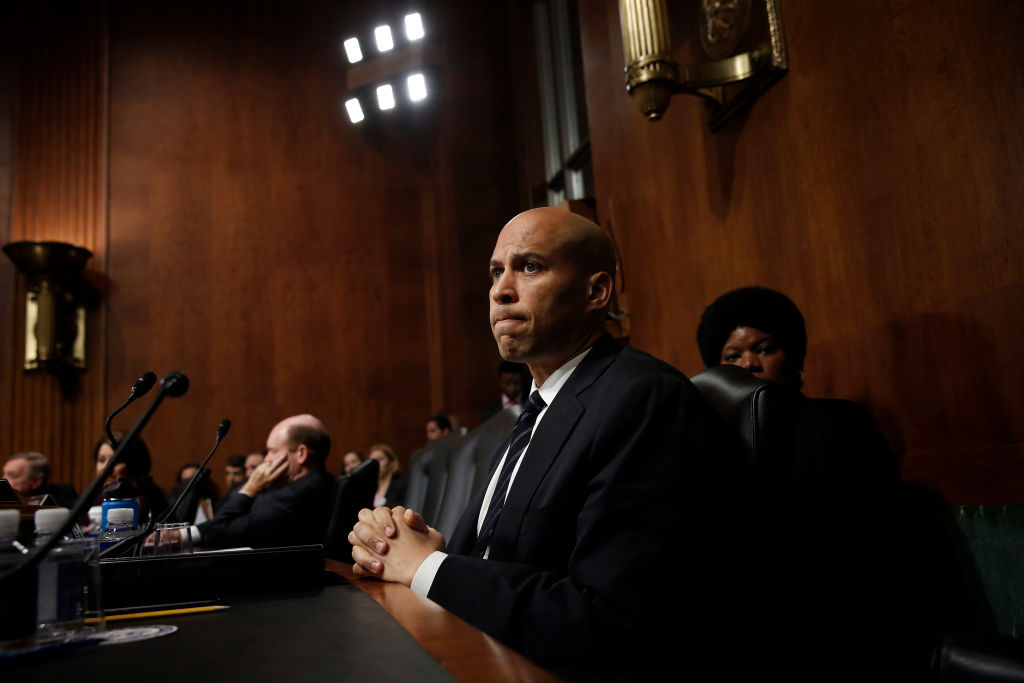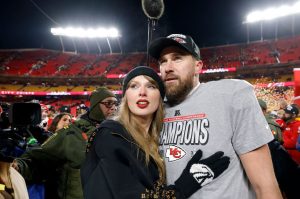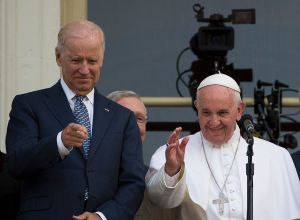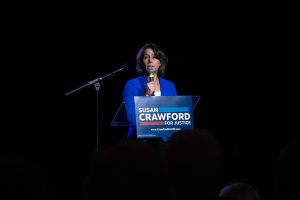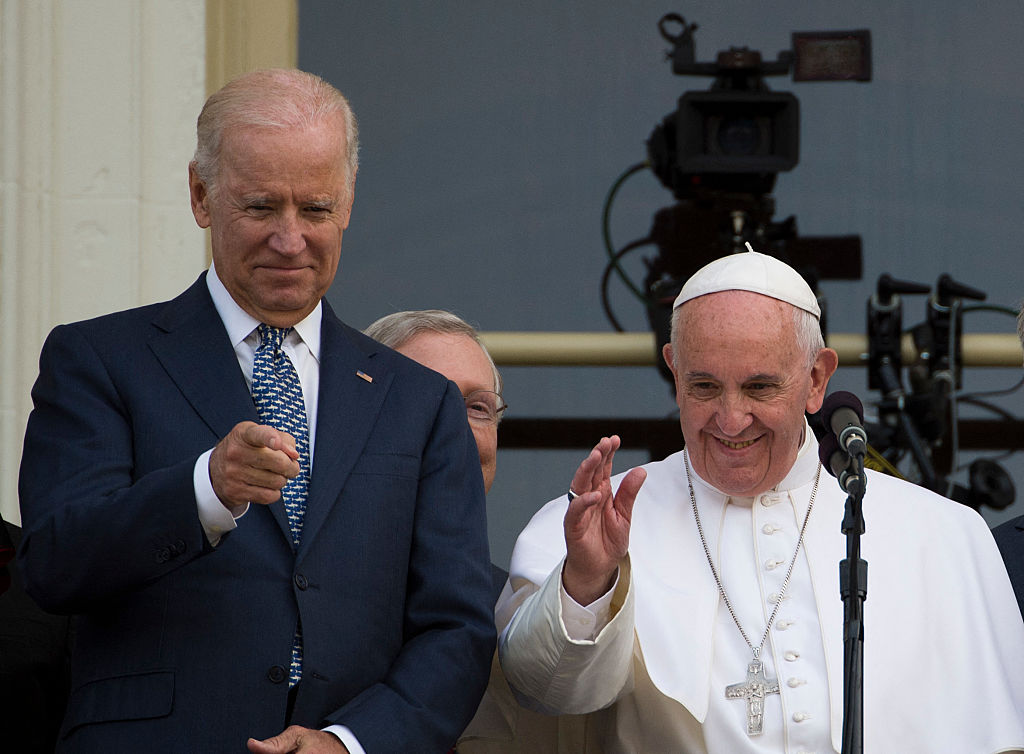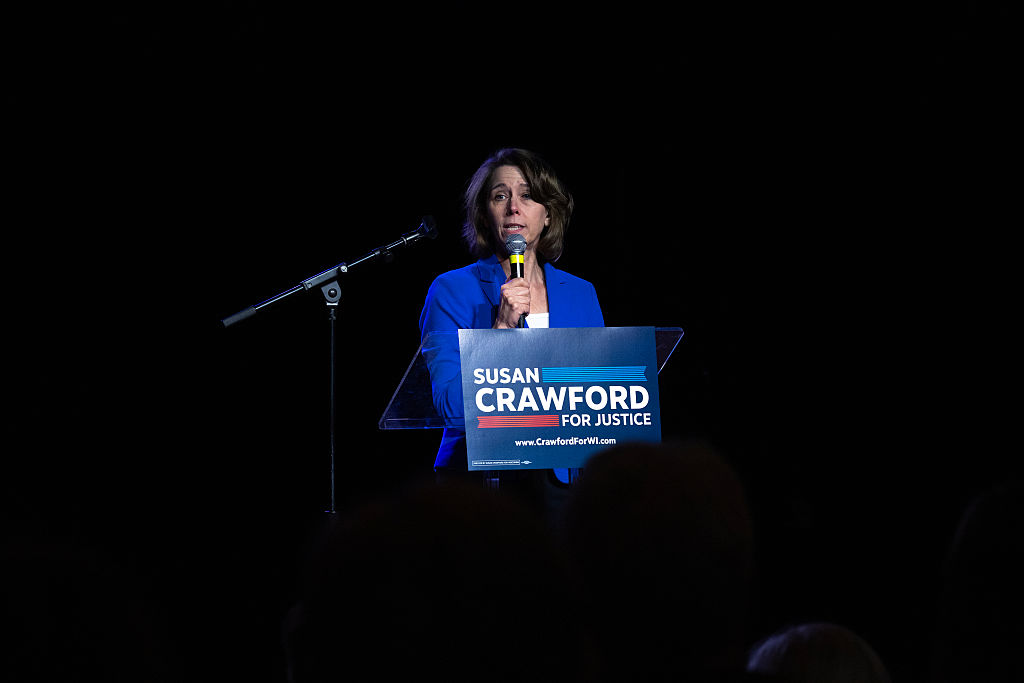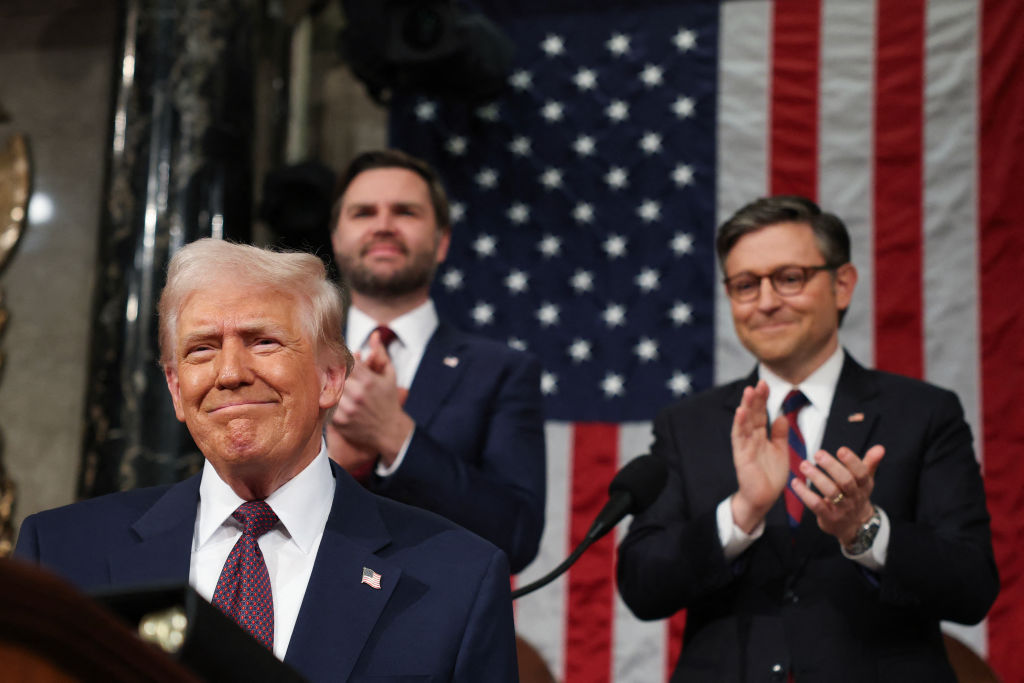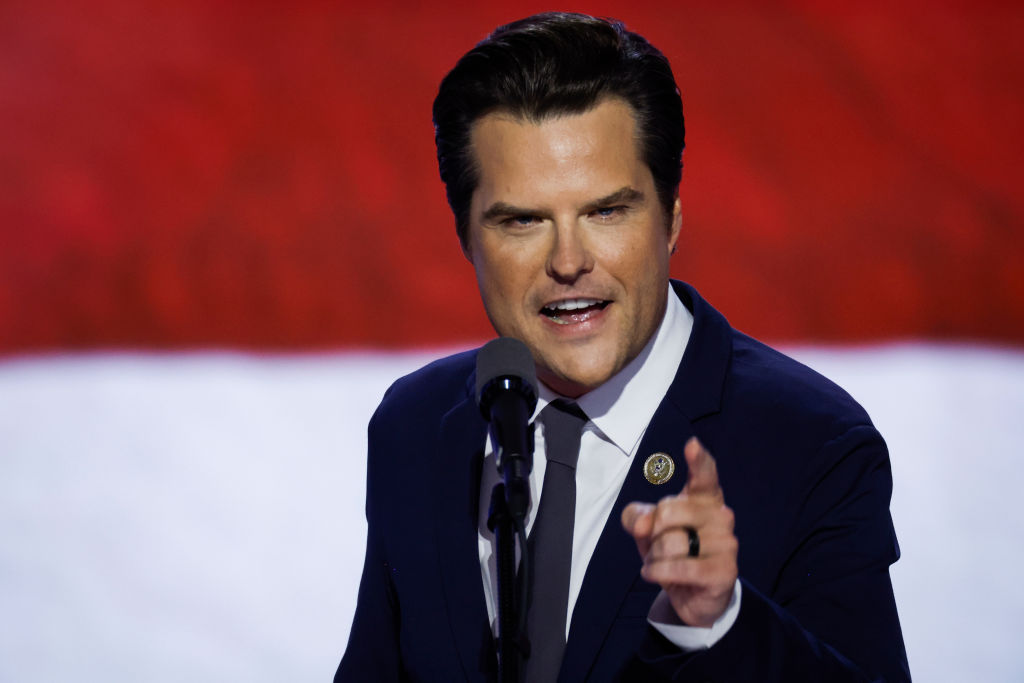Cory Booker has a problem. It’s a painful problem for a man who believes he has the background and résumé to rescue the country from an ahistorical reactionary force clawing back the progress achieved during the Obama era.
It’s an especially painful problem that is made worse because it is strikingly obvious to almost every person except Cory Booker. The problem rears its head every time Booker opens his mouth or attempts the smallest gesture of solidarity with some member of an aggrieved class.
It’s a problem made worse every time Book feels like he’s solving some other problem or crisis facing the country. With each desperate attempt at heroism or good, ol’ fashioned problem solving, he finds himself one step back.
Booker’s problem is rather simple: he’s a bit of a dweeb. He’s a man who, despite accomplishing so much, can’t seem but come across as a loser.
He’s also a hypocrite. As mayor of Newark, Booker sold himself as a champion of the downtrodden in a decaying urban landscape riddled with crime and all other sorts of toxic social pathologies. Yet simultaneously, Booker cozied up with various financiers and Wall Street bleeding hearts looking for a charismatic liberal who wouldn’t ultimately knife them in the back.
After all, teaming up with an inspirational, young liberal who also enjoys the company provided by swanky cocktail parties and expensive suits is the best hedge a banker can make. Funding a Man of The People who is also a Man of Wall Street ensures you have some protection from The People.
In the meantime, wealthy members of the Silicon Valley and Manhattan elite donated millions of dollars to Booker’s initiatives in Newark, from improving schools to gun control programs. It was a win for liberal pragmatism and a win for various public relations departments (actual results be damned).
Yet this precise partnership Booker engaged in is exactly why the Atlantic ran a piece in 2013 called ‘Why Do Liberals Hate Cory Booker.’
‘There’s a healthy skepticism, given his record of cozying up to Wall Street donors, defending corporations like Bain Capital, and supporting Michelle Rhee’s extreme school-privatisation agenda,’ Progressive Change Campaign Committee co-founder Adam Green said at the time.
But all his time in New Jersey could be forgiven or forgotten, if only Booker didn’t suffer from his problem. After all, President Barack Obama never shied away from accepting generous sums of money from the rich – in 2011, one-third of Obama’s total donations came from Wall Street. Nor did Obama’s mediocre governing stop him from a high post-office approval rating, despite his successor running – and winning – on an agenda to undo the last eight years.
Booker’s desperate attempts at seeming relevant or important, despite his being a United States Senator with broad experience across branches of government and the private sector, make him appear like some sort of water boy trying to jockey his way into the quarterback’s huddle.
During the hearings for Supreme Court nominee Brett Kavanaugh, Booker proclaimed his own ‘I am Spartacus’ moment by literally saying, ‘This is about the closest I’ll probably ever have in my life to an “I am Spartacus” moment.’
In reality, the moment was more akin to a self-delusional nerd who thinks he can bring a popular cheerleader to prom because she smiled after he let her borrow a pencil.
Booker told the Senate, and the country, that he was prepared to declassify emails from Kavanaugh’s time in the Bush administration in order to expose the judge’s true feelings about racial profiling and abortion.
Except the GOP had already signed off on the release of the emails the night beforehand and the documents themselves showed Kavanaugh to be hesitant about any security policy that could appear discriminatory.
Perhaps if Booker actually saw Spartacus, he would know the fate of the film’s protagonist and choose a different analogy.
There were, of course, other small moments throughout the hearings where Booker’s eagerness to appear in a clip on the evening news or social media were rightfully mocked.
He called Kavanaugh’s supporters as ‘complicit in evil’ before oddly backtracking and said he has ‘learned to be more precise,’ despite the fact that his party’s leftist base has ordered no limits on hostile rhetoric.
Booker also eagerly stepped in front of the cameras and brought Christine Ford a coffee in the middle of her testimony, akin to the aforementioned pencil-wielding nerd.
Booker is a Senator, not a barista or poorly compensated Capitol Hill intern. But somehow he exudes anti-charisma. He’s also a man who wants to be everything while coming across as nothing.
Therein, again, lies his problem: Booker wants to be president, but the core of his being prevents him.
He believes his experience and acts of grace will get him there, yet experience was laughed away by Obama and grace stamped out by Donald Trump.
Booker will not be president because the presidency is not occupied by men like Booker.
Instead, Booker will forever be on his mission to the White House without realising the mission is the problem itself.
Joe Gabriel Simonson is a Media Reporter at the Daily Caller.



